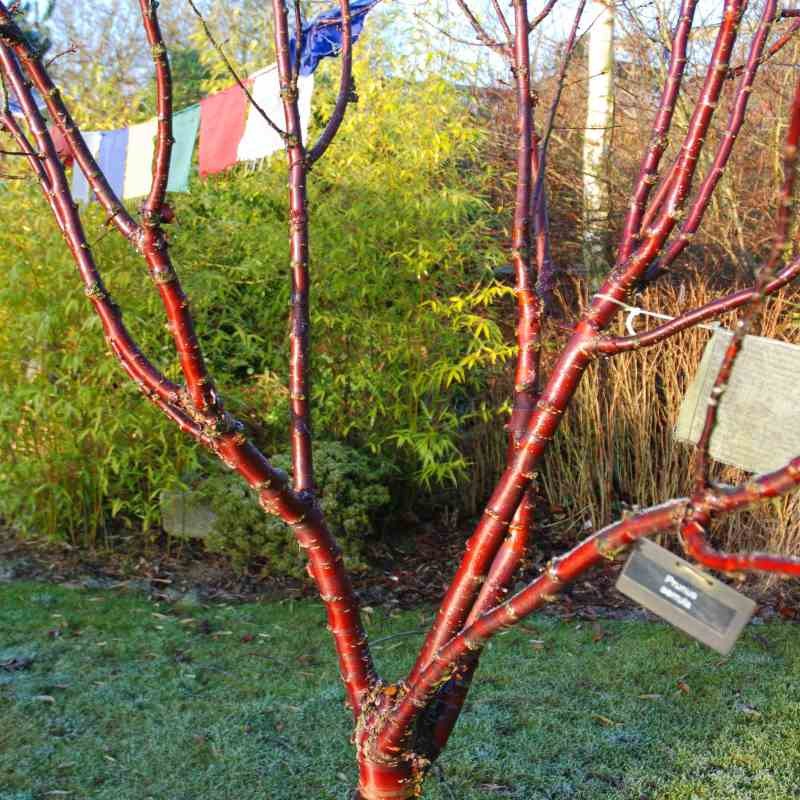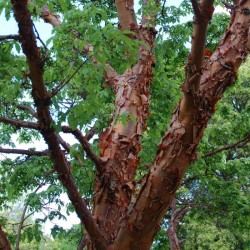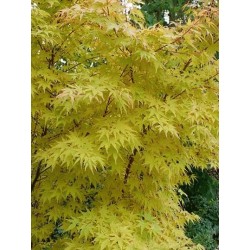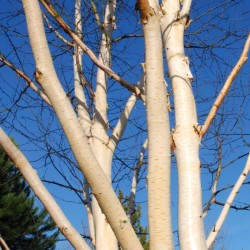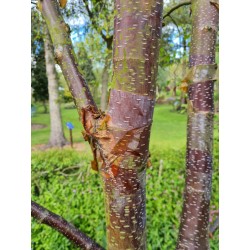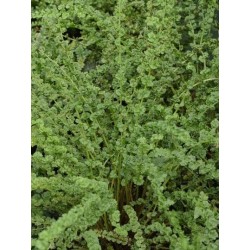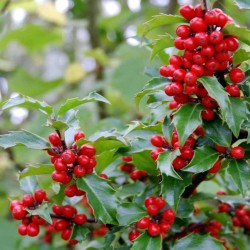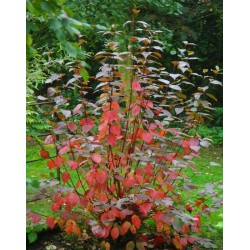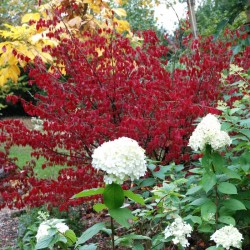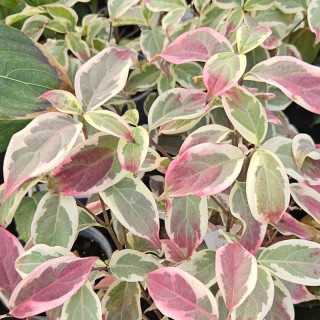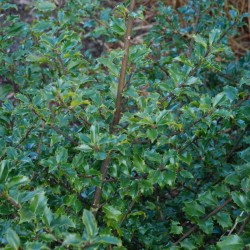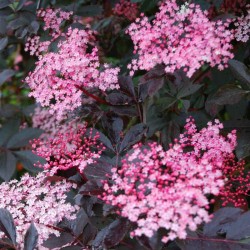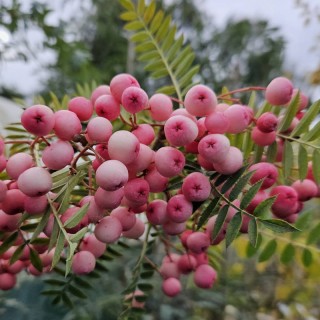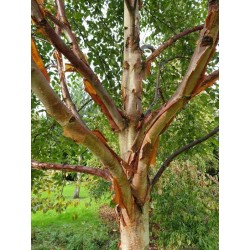- Home
- Offer - up to 30% off Selected Plants
- Trees & Shrubs
- Abelia
- Abeliophyllum
- Acer
- Acradenia
- Aesculus
- Ageratina
- Alnus
- Amelanchier
- Amelasorbus
- Amorpha
- Aralia
- Arbutus
- Aronia
- Asimina
- Atherosperma
- Aucuba
- Berberis
- Betula
- Brachyglottis
- Buddleja
- Buxus
- Callicarpa
- Calycanthus
- Camellia
- Caragana
- Carpinus
- Carya
- Caryopteris
- Catalpa
- Ceanothus
- Celtis
- Cephalanthus
- Ceratostigma
- Cercidiphyllum
- Cercis
- Chaenomeles
- Chimonanthus
- Chionanthus
- Chitalpa
- Choisya
- Cistus
- Cladrastis
- Clerodendrum
- Clethra
- Cleyera
- Colquhounia
- Coprosma
- Cornus
- Correa
- Corylopsis
- Corylus
- Cotinus
- Cotoneaster
- Crataegus
- Crinodendron
- Cytisus
- Daphne
- Davidia
- Decaisnea
- Desfontainia
- Deutzia
- Dichroa
- Diervilla
- Dipelta
- Dipteronia
- Disanthus
- Distylium
- Drimys
- Elaeagnus
- Eleutherococcus
- Embothrium
- Emmenopterys
- Enkianthus
- Escallonia
- Eucalyptus
- Eucryphia
- Euonymus
- Exochorda
- Fagus
- Fatsia
- Ficus
- Firmiana
- Forsythia
- Fothergilla
- Franklinia
- Fuchsia
- Gardenia
- Garrya
- Gaultheria
- Gleditsia
- Griselinia
- Gymnocladus
- Hakea
- Halesia
- Halimodendron
- Hamamelis
- Hebe
- Hedera
- Heptacodium
- Hibiscus
- Hippophae
- Hoheria
- Holodiscus
- Hovenia
- Hydrangea
- Hypericum
- Ilex
- Illicium
- Indigofera
- Itea
- Jasminum
- Juglans
- Kalopanax
- Koelreuteria
- Kolkwitzia
- Laburnum
- Laurus
- Lavandula
- Leptospermum
- Lespedeza
- Leucothoe
- Leycesteria
- Ligustrum
- Lindera
- Liquidambar
- Liriodendron
- Lonicera
- Luma
- Maackia
- Maclura
- Maddenia
- Magnolia
- Mahoberberis
- Mahonia
- Malus
- Melliodendron
- Metrosideros
- Mitraria
- Morus
- Myrtus
- Nandina
- Neillia
- Neoshirakia
- Nothofagus
- Nyssa
- Olearia
- Osmanthus
- Ostrya
- Oxydendrum
- Ozothamnus
- Pachysandra
- Paeonia
- Parrotia
- Parrotiopsis
- Paulownia
- Perovskia
- Phellodendron
- Philadelphus
- Phillyrea
- Phormium
- Photinia
- Phymosia
- Physocarpus
- Pieris
- Pistacia
- Pittosporum
- Platanus
- Platycrater
- Poliothyrsis
- Poncirus
- Populus
- Potentilla
- Prunus
- Pseudocydonia
- Pseudopanax
- Pseudowintera
- Ptelea
- Pterocarya
- Pterostyrax
- Pyracantha
- Pyrus
- Quercus
- Rehderodendron
- Rhamnus
- Rhaphiolepis
- Rhaphithamnus
- Rhododendron
- Rhus
- Ribes
- Robinia
- Romneya
- Rostrinucula
- Rubus
- Ruscus
- Salix
- Sambucus
- Sapium
- Sarcococca
- Sassafras
- Sinocalycanthus
- Sinojackia
- Skimmia
- Sophora
- Sorbaria
- Sorbus
- Spiraea
- Stachyurus
- Staphylea
- Stephanandra
- Stewartia
- Styrax
- Sycoparrotia
- Sycopsis
- Syringa
- Tamarix
- Tetracentron
- Tetradium
- Tilia
- Toona
- Trachycarpus
- Trochodendron
- Ugni
- Ulmus
- Vaccinium
- Viburnum
- Vinca
- Vitex
- Weigela
- Xanthoceras
- Zanthoxylum
- Zelkova
- Zenobia
- Conifers
- Climbers
- Herbaceous
- Acanthus
- Achillea
- Actaea
- Aegopodium
- Agapanthus
- Ajuga
- Alchemilla
- Anchusa
- Anemone
- Aralia
- Artemisia
- Arum
- Aster
- Astrantia
- Bergenia
- Brunnera
- Campanula
- Centaurea
- Cephalaria
- Crocosmia
- Dicentra
- Dierama
- Diplarrena
- Disporum
- Echinacea
- Epimedium
- Eryngium
- Eupatorium
- Euphorbia
- Galega
- Geranium
- Geum
- Helenium
- Helianthus
- Helleborus
- Hemerocallis
- Hemiboea
- Heuchera
- Hosta
- Inula
- Iris
- Kirengeshoma
- Kniphofia
- Lamium
- Libertia
- Ligularia
- Lysimachia
- Lythrum
- Monarda
- Nepeta
- Paeonia
- Penstemon
- Persicaria
- Phygelius
- Physalis
- Polemonium
- Pulmonaria
- Rodgersia
- Rudbeckia
- Scopolia
- Sedum
- Symphytum
- Thalictrum
- Tiarella
- Tricyrtis
- Verbena
- Veronica
- Veronicastrum
- Ferns
- Grasses
- Gift Vouchers
- All Plants currently in stock
- Plant Finder (Filter Plants by size, features, etc)
- Popular Categories
- About us
- About our Gardens
- Delivery
- Address & Opening Times
English
GBP £
Menu
-
MenuBack
-
Trees & Shrubs
-
-
Conifers
-
-
Climbers
-
-
Herbaceous
-
-
Ferns
-
-
-
-
-
2-1
-
-
-
Grasses
-
- Gift Vouchers
-
Popular Searches
-
-
-
Newly listed plantsRecently added to our website
-
-
10% off website orders over £30 & free delivery for orders over £60*
10% off website orders over £30
& free delivery for orders over £60*
Prunus serrula
In Stock (shipped within 2-3 working days)
£75.00
(Tibetan Cherry) An unusual highly ornamental cherry tree renowned for its polished, mahogany brown bark which is evident even on young specimens and very smooth to the touch.
Delivery Options
(For any number of plants sent by courier)
Standard: £6.95* | Priority: £15 | Click & Collect |
*Surcharges apply for Highlands & Islands.
Delivery Options
(For any number of plants sent by courier)
Standard: £6.95*
Delivered in 2-3 working days
Priority: £15
Shipped ASAP
Click & Collect: free
*Surcharges apply for Highlands & Islands.
An unusual ornamental cherry renowned for its polished, mahogany brown bark which is evident even on young specimens and very smooth to the touch.
It has narrow, willow-like, dark green leaves unlike any other cherry and casts only light shade. In spring each year sporadic white flowers appear on the branches.
Prunus serrula is a wonderful garden tree which gives a jaw-dropping winter display!
- Position: Full sun or partial shade.
- Soil: Any reasonably well drained, fertile soil.
- Hardiness: Hardy.
- Flowering Period: May.
- Flower Colour: White
- Rate of Growth: Moderate.
- Habit: Prunus serrula grows to be a small or eventually a medium sized tree with a rounded crown once established.
- Height: 10 m (32 ft)
- Spread: 8 - 10 m (26 - 32 ft)
- Notes: Prunus are known for their vigorous root systems and should not be planted over drains or close to house foundations. This plant was formerly called Prunus tibetica.
Further Information
This species was introduced to Britain in 1908 by Ernest Wilson from a collection in Western Szechuan, and in 1913 George Forrest introduced another clone from Yunnan. It flourishes in the Tibetan border areas with Western China.
Happy in sandy or clay soils, either acid or chalky the Tibetan cherry will flourish in all parts of Britain. Although the flowers and autumn colours are not as spectacular as other cherries, this beautiful small tree quickly develops lovely, tactile, mahogany coloured polished bark for which it has become famous.
Like the beautiful white barked Himalayan Birches, it benefits from an annual scrub and hose down with clean water. This occasional treatment can transform specimens in urban areas where they may gradually become soiled with grime.
The Tibetan prayer flags shown in the photo are attached to the branches of a Prunus serrula in our own gardens. They are hung in huge numbers throughout Tibet on trees, rocks and houses. Occasionally even yaks have prayer flags attached to them!
The Tibetan word for prayer flag is Lung ta which literally translates as 'wind horse'. The prayers written on the flags drift up to Buddha. Blue flags signify the sky, white flags represent air, red flags are for fire, green flags for water and yellow flags for earth.
Extract from an information poster in our arboretum
- How Much Sun
- Full Sun, Light Shade
- Eventual Size
- Tree - Small (4m - 8m), Tree - Medium (8m - 15m)
- Growing Conditions
- Soil: Alkaline, Soil: Acid, Soil: Not Fussy
- Special Features
- Ornamental Bark
26 Items
Similar plants
Customers who bought this product also bought:
Agapanthus
Agapanthus 'Fireworks'
Athyrium
Athyrium filix-femina 'Frizelliae'
Cornus
Cornus alba 'Kesselringii'
Cornus
Cornus kousa 'ShiraYuki'
Sambucus



















